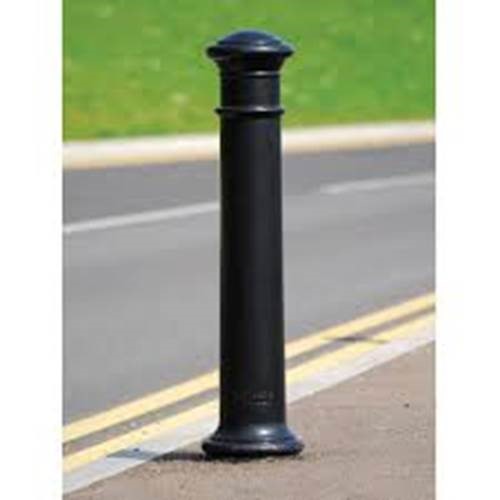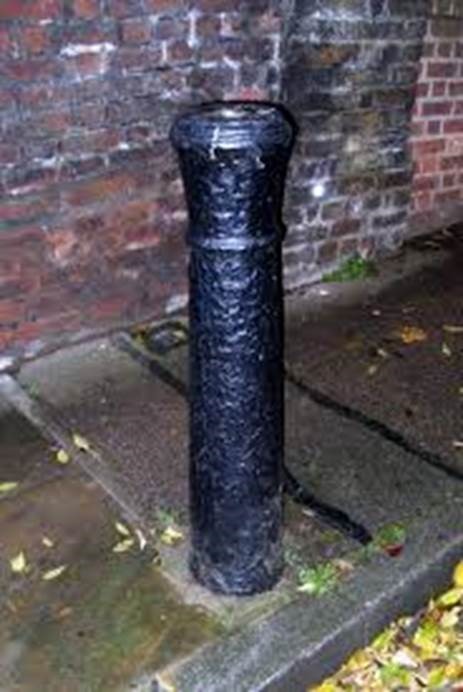You see them everywhere but why are they that shape?

Firstly bollards in their present form are not a new invention, neither were they initially designed to prevent horse drawn carriages or vehicles from mowing down shoppers on a busy high street.
In fact the traditional bollard shape can traced back at least 200 years to its original purpose of mooring ships to the quayside.
But why the odd shape with a ball on top?
Basically following on from the expansion of the Empire and domination of the seas by the Royal Navy Britain found itself with an ageing fleet of ships with no one to sink anymore. Decommissioning of ships in the late 18th and early 19th century saw the fleet cut by 80% and a whole load of useless cannons stacking up on the quayside ready for scrap, until someone came along, upended one and stuck a cannon ball in the muzzle and threw a rope around it and the bollard was born.

Indeed there were so many cannons, either scrapped or captured in the Napoleonic War that manufacturer’s lobbied parliament to prevent the re-use of captured cannons as weapons and rather than scrap them put them to good use.
With the increase of various forms of traffic, bollards took on a new lease of life preventing carriages and later vehicles from unauthorised access.
So next time you spy a traditional bollard take a closer look, it may actually be part of our heritage and not just a boring old lump of metal.